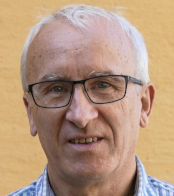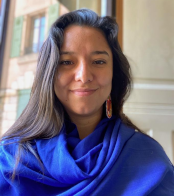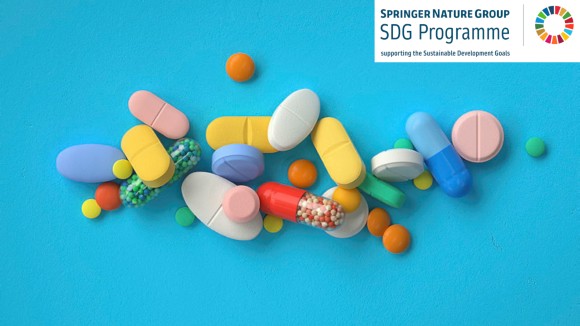Lead Guest Editor:
 Christoph Gradmann is a historian of medicine and science. Trained at universities in Germany and the UK, he became full professor at the University of Oslo in 2006 where he is currently heading the Department for Community Medicine and Global Health. His research interests range from the intellectual history of interwar Germany, through 19th century medical bacteriology, 20th drug development, antibiotics resistances to the history of tuberculosis in global health. It is the production of knowledge in hospitals, laboratories and industries that stands centre in his investigations. Such interests have resulted in a considerable oeuvre with three monographs, numerous editions, guest editorships and many papers. His “Laboratory Disease. Robert Koch’s Medical Bacteriology” of 2009 is considered the definitive biography of this German physician. A monograph on the 20th century history of African tuberculosis is forthcoming in 2024. www.med.uio.no/helsam/english/people/aca/ulrichcg/index.html
Christoph Gradmann is a historian of medicine and science. Trained at universities in Germany and the UK, he became full professor at the University of Oslo in 2006 where he is currently heading the Department for Community Medicine and Global Health. His research interests range from the intellectual history of interwar Germany, through 19th century medical bacteriology, 20th drug development, antibiotics resistances to the history of tuberculosis in global health. It is the production of knowledge in hospitals, laboratories and industries that stands centre in his investigations. Such interests have resulted in a considerable oeuvre with three monographs, numerous editions, guest editorships and many papers. His “Laboratory Disease. Robert Koch’s Medical Bacteriology” of 2009 is considered the definitive biography of this German physician. A monograph on the 20th century history of African tuberculosis is forthcoming in 2024. www.med.uio.no/helsam/english/people/aca/ulrichcg/index.html
Guest Editors:

Mirza Alas Portillo is a doctoral researcher at University College Dublin (UCD) in Ireland. Her research focuses on the history of the antibiotics empty pipeline from the 1980s, particularly in the context of rising antimicrobial-resistant problems. She trained in public health and development, and her research interests include antibiotic innovation, global health policy and access to medicines. She has previously worked at the international level in Geneva in health policy, health diplomacy, and antimicrobial resistance.

Isabel María Gómez Rodríguez is a PhD Candidate in Social Studies of Science at the Institute of Philosophy of the Spanish National Research Council (IFS-CSIC) and at the Doctorate program in Logic and Philosophy of Science at the University of Salamanca. After obtaining her Bachelor’s Degree in Biotechnology at the University of Valencia, she specialized in Gender and Diversity Studies and Science, Technology and Innovation Studies at the University of Oviedo. Her work in this field is focused on ecofeminism as well as ontological, social, and bioethical dimensions of molecular biology, genetics, and biotechnology. She’s part of the How Did the Antibiotic Pipeline Run Dry? (DryAP) project, in which she conducts feminist historiography of science, focusing the power hierarchies inside the laboratory and experiences of Spanish women microbiologists researching on antibiotics during the 1980s-1990s.
 Erin L. Paterson is a member of the Dry AP project, researching how health policy and regulations have impacted the drying of the antibiotic pipeline. She is based out of Strasbourg, France. Her research primarily focuses on global policy decisions, the intersection of global health institutions such as the WHO and NGO actors, the financial market’s influence on innovation, and the conception of pipeline maintenance in regards to antibiotic stewardship.
Erin L. Paterson is a member of the Dry AP project, researching how health policy and regulations have impacted the drying of the antibiotic pipeline. She is based out of Strasbourg, France. Her research primarily focuses on global policy decisions, the intersection of global health institutions such as the WHO and NGO actors, the financial market’s influence on innovation, and the conception of pipeline maintenance in regards to antibiotic stewardship.
Prospective authors may contact the Guest Editors via email:
Christoph Gradmann christoph.gradmann@medisin.uio.no
Mirza Alas Portillo mirza.alasportillo@ucdconnect.ie
Isabel M. Gómez Rodríguez isabel.gomez.rodriguez@cchs.csic.es
Erin L. Paterson paterson@unistra.fr
Advisory board:
Stuart Blume, University of Amsterdam
Jørn Bolstad, University of Copenhagen
Sabiha Yusuf Essack, University of KwaZulu-Natal
Rebecca Glover, London School of Hygiene & Tropical Medicine
Steve Hinchcliffe, University of Exeter
Scott Podolsky, Harvard Medical School Muhammad
Salla Sariola, University of Helsinki
H Zaman, Boston University

